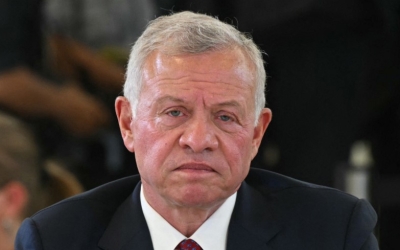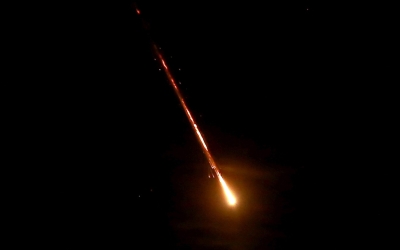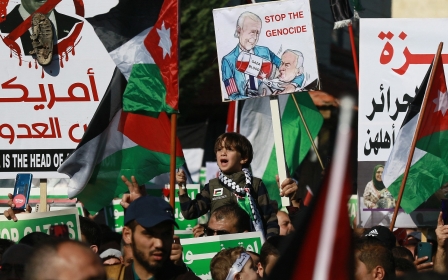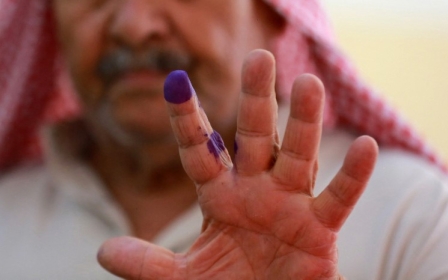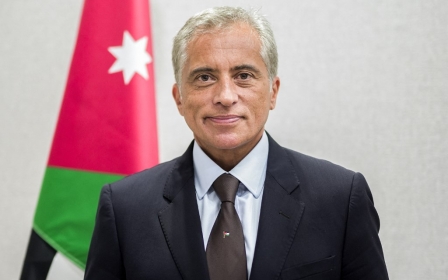Jordan: Authorities arrest relatives of shooters of Israeli soldiers in Dead Sea attack

Jordanian authorities have arrested several relatives of two men behind a cross-border shooting attack near the Dead Sea earlier this month that wounded two Israeli soldiers.
Families of Amer Qawas and Hussam Abu Ghazaleh, who were killed in the attack, are calling for the release of their detained friends and family members.
A member of the Abu Ghazaleh family told Middle East Eye that about 10 friends of the deceased were arrested in the northern Hashimi area of Amman. He added that representatives from the Islamic Action Front (IAF), the largest opposition party affiliated with the Muslim Brotherhood, have not been allowed to visit the detainees.
Eight individuals have been held without charge and interrogated since 18 October by the General Intelligence Department, according to their lawyer, Abd al-Qader al-Khatib.
“A few days ago, I submitted a request to visit the detainees, but it was rejected,” al-Khatib said. “Detaining them without charges is unjustified. They should have been heard and released, not held for over a week without legal grounds, violating the constitution and laws.”
New MEE newsletter: Jerusalem Dispatch
Sign up to get the latest insights and analysis on Israel-Palestine, alongside Turkey Unpacked and other MEE newsletters
Qawas and Abu Ghazaleh crossed the Jordanian border on 18 October and clashed with Israeli forces, where they were subsequently shot dead. The Israeli army reported that two soldiers were wounded in the attack in Neot HaKikar, located around three kilometres south of the Dead Sea, stating they had "neutralised" the attackers.
A Jordanian official told MEE that “security matters are under investigation” but could not comment further. “It is up to the judiciary to determine if any charges are warranted, and Jordanian laws and the constitution guarantee this," he said.
Security expert Dr Omar al-Raddad, a former brigadier in the General Intelligence Department, emphasised the need to investigate those close to the attackers. He noted differences between this incident and a previous attack by Jordanian Maher al-Jazi, who shot and killed three Israelis near the Allenby Bridge border crossing in September.
“The attack at the Dead Sea is different; they recorded wills before the attack and were affiliated with the Muslim Brotherhood, which endorsed it,” Raddad remarked. He noted that al-Jazi acted alone, despite leaving a letter explaining he was motivated by Israel's ongoing actions against Palestinians in Gaza.
The IAF lauded the Dead Sea attack by Qawas and Abu Ghazala, and called on the government to “reconsider its agreements with the Zionist enemy".
However, it described the incident as “a heroic but individual act,” stating it was a response from young Jordanians “who could not bear to witness the brutal scenes of Zionist atrocities”.
Nonetheless, Raddad said the IAF’s leadership needed to give “answers and clarifications” on whether there are factions within the party supporting military actions against Israel and possibly coordinating with Hamas and Iran.
Calls for bodies retrieval
Meanwhile, Jordanian activists have been urging authorities to retrieve the bodies of Abu Ghazaleh and Qawas, currently held by Israel.
An online campaign under the hashtag #ReturnOurSonsBodies has gained traction, with participants calling on the government to ensure families can properly mourn and bury their sons, arguing that holding bodies contravenes international law.
Hussein Abu Ghazaleh, Hussam’s father, told MEE: “We have taken steps to demand the return of our sons' bodies and have been in contact with several MPs who promised to follow up with the Ministry of Foreign Affairs.”
Since the start of Israel's war on Gaza, Jordan's leaders have navigated increased anti-Israel sentiment while maintaining bilateral relations with Israel.
Since the start of Israel's war on Gaza, Jordan's leaders have had to walk a fine line between heightened anti-Israel sentiment in the country and ensuring its own bilateral relationship with Israel.
The country has a large population descended from Palestinian refugees forced to flee historic Palestine after the mass expulsions, widely known as the Nakba, and regularly sees mass protests in support of the Palestinian resistance in Gaza.
At the same time, Jordan's government has not significantly altered its diplomatic relationship with Israel, and trade ties between the two continue as normal.
After Iran launched missile salvos at Israel in April and again in October, Jordanian armed forces were involved in attempting to down missiles flying over Jordanian territory, prompting domestic criticism.
Middle East Eye delivers independent and unrivalled coverage and analysis of the Middle East, North Africa and beyond. To learn more about republishing this content and the associated fees, please fill out this form. More about MEE can be found here.


